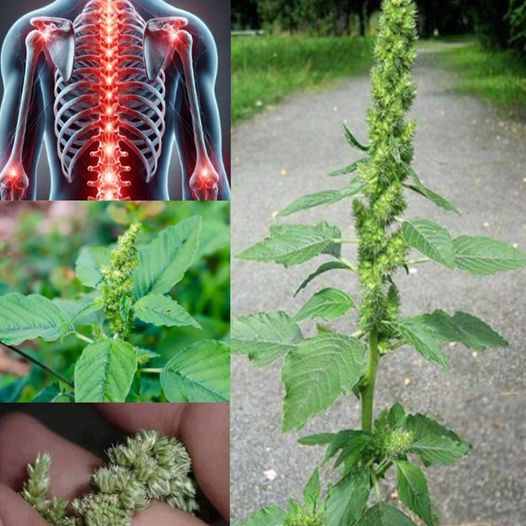The Health Benefits of Pigweed: A Resilient Plant with Nutritional Value
The troublesome weed Amaranthus retroflexus is pigweed. This tough plant also has several health benefits. Pigweed, an American native, has been utilized in medicine and culinary for millennia. Pigweed has several health benefits, so let’s discuss why you should eat it.
Nutritional Powerhouse
- Pigweed is nutritious and a good complement to any diet. Pigweed contains these nutrients:
- Pigweed contains vitamins A, C, and K. Vit. A is needed for eyesight and immunity, C for antioxidants, and K for blood clotting and bone health.
- Minerals: Calcium, iron, magnesium, and potassium are important for health.
- Protein: Pigweed leaves provide high-quality protein, including critical amino acids the body cannot produce.
- Fiber: The plant contains dietary fiber, which improves digestion and regulates blood sugar.
Amazing Health Benefits of Pigweed:
1. Antioxidant-Rich
Pigweed contains antioxidants that fight oxidative damage. Antioxidants fight free radicals, lowering the risk of heart disease, diabetes, and cancer. Pigweed is antioxidant due to its high vitamin C content.
2. Eye Health Support
Pigweed provides vitamin A, essential for vision. It protects the cornea and prevents age-related macular degeneration, a primary cause of vision loss in older persons.
3. Immune System Boost
Pigweed’s vitamin C boosts white blood cell formation and protects against infections. Regular ingestion helps minimize cold and flu frequency and severity.
4 Promotes Bone Health
Pigweed’s vitamin K and calcium strengthen bones and teeth. Vitamin K regulates calcium levels and bone metabolism, preventing osteoporosis and fractures.
5. Aids digestion
Pigweed’s dietary fiber bulks stool, promoting regularity and reducing constipation. Overall digestive health depends on a healthy gut microbiota, which fiber supports.
6. Detoxifies
Traditional detox treatments use pigweed. The plant’s nutrients enhance liver function and toxin removal, improving health.
7. Controls Blood Sugar
Pigweed fiber slows sugar absorption, regulating blood sugar. Diabetes patients and those at risk may benefit from this.
How to Eat Pigweed
Cooking with pigweed is similar to using spinach or other leafy greens. Some ideas:
- Salads: Fresh pigweed leaves add nutrition.
Adding pigweed leaves to smoothies adds vitamins and minerals.
Pigweed leaves sautéed in garlic and olive oil make a healthful side dish.
Pigweed adds nutrients to soups and stews. - Herbal Teas: Dried pigweed leaves make cleansing tea.
Pigweed (Amaranthus retroflexus) is often considered a weed, yet its nutritional value and health benefits make it worth eating. Pigweed improves immunological function, ocular health, digestion, and blood sugar levels naturally and nutritiously. When you see this plant, know that it’s a nutritious powerhouse ready to be used.

